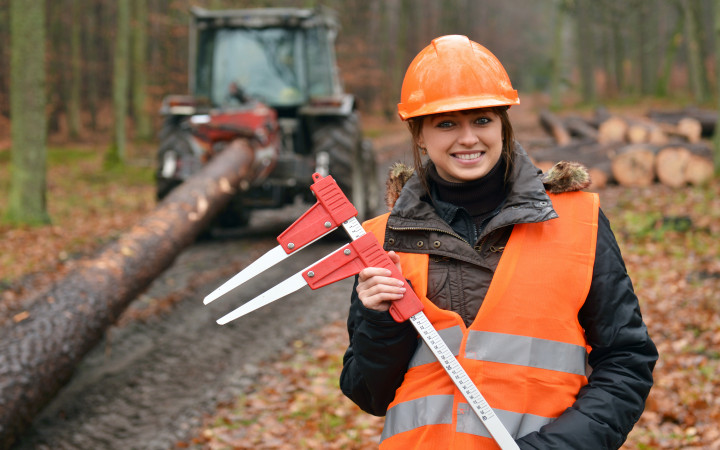Today’s Wonder of the Day was inspired by Kevin from Quantico, VA. Kevin Wonders, “What does a forester do?” Thanks for WONDERing with us, Kevin!
Do you like spending time outside? How about exploring the wilderness? If so, today’s Wonder of the Day may be about your future career. What are we talking about? Forestry, of course!
People who work in forestry are called foresters. What do foresters do? Their jobs can cover many tasks. There are many areas of work in forestry. Two of the most common are timber and conservation.
Timber foresters work for companies that grow and harvest trees for their wood. This wood is then used to build homes and other structures. Timber foresters help take care of the forests owned for this purpose. They have many responsibilities, such as determining when trees are ready to be harvested. They may also help measure the company’s impact on habitats.
Conservation foresters focus on wild forests. One of their main goals is to protect ecosystems. That means they pay close attention to populations of plants and animals. They also track the impact of human presence in forests.
Whether foresters work in timber, conservation, or another area, many share common responsibilities. Often, they plant and care for new trees. They also help with fire management, especially in the case of wildfires.
Many foresters choose the profession, in part, because they want to work outdoors. After all, that’s where foresters spend much of their time! Exploring and forests is a main part of the job.
Many foresters also use a lot of technology. They rely on tablets, GPS devices, and cameras to do their work. Some foresters even learn to fly helicopters and small airplanes to get a better view of forest land.
How does someone become a forester? Most often, they earn a degree in forestry, conservation, or a related field. This involves taking many classes in science, math, and technology in college.
Are you interested in a future in forestry? If so, you don’t have to wait for college! Begin today by spending more time outdoors. Ask an adult to help you learn to care for trees and other plants. Try your hand at gardening to find out whether caring for plants is your passion. Then, work hard in school—especially in classes like math and science.
Could forestry be the right career for you? Perhaps you already have something else in mind! Either way, it’s never too early to start exploring your interests.
Standards: CCRA.R.4, CCRA.R.10, CCRA.L.3, CCRA.L.6 ,CCRA.R.2, CCRA.R.1, CCRA.SL.1, CCRA.L.1, CCRA.W.3, CCRA.SL.3, CCRA.L.2, CCRA.SL.2




